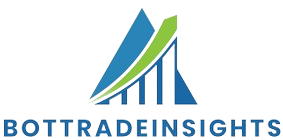As technology evolves, so do the options available for investors. Among them, trading bots offer varying levels of automation and sophistication. But with this diversity comes a crucial consideration: the cost associated with acquiring and utilizing these bots. This article explores the different pricing models employed by bot providers, analyzes the factors influencing costs, and helps you navigate the financial landscape of automated trading.
Understanding Trading Bots
Trading bots, also known as algorithmic or automated trading systems, have revolutionized the way traders operate in financial markets. These sophisticated software programs are designed to execute buy or sell orders on behalf of traders, relying on pre-set criteria and advanced algorithms. The primary goal is to streamline the trading process and capitalize on market opportunities with speed and precision.
These bots operate in real-time, analyzing vast amounts of market data, price movements, and other relevant factors that may impact trading decisions. By automating the execution of trades, trading bots eliminate the emotional aspects of trading, which can often lead to impulsive and irrational decisions.
Moreover, trading bots enable traders to engage with the markets 24/7, ensuring they never miss out on potential opportunities, even when they are not actively monitoring the markets. This constant vigilance can be particularly advantageous in the fast-paced and dynamic world of finance.
Benefits of Using Trading Bots
Trading bots offer a myriad of advantages, making them a valuable asset for both novice and experienced traders alike. Here are some key benefits:
- Speed and Efficiency:
- Trading bots operate at lightning speed, executing trades in milliseconds. This quick response is crucial in a market where prices can change rapidly.
- Automated systems eliminate delays caused by human decision-making, ensuring timely execution of trades.
- 24/7 Availability:
- Unlike human traders who need rest, trading bots can operate 24/7. They don’t miss out on opportunities arising in different time zones or during off-hours.
- Continuous monitoring allows bots to react promptly to market developments, providing a constant presence in the ever-changing financial landscape.
- Emotion-Free Trading:
- Human emotions such as fear and greed can cloud judgment and lead to irrational decisions. Trading bots operate based on predefined algorithms, eliminating emotional biases.
- By removing emotions from the equation, bots can stick to the trading strategy without being swayed by market sentiment.
- Backtesting and Strategy Implementation:
- Trading bots often come with backtesting capabilities, allowing users to test strategies against historical data. This helps refine and optimize trading strategies before deploying them in real-time.
- Automated systems can execute complex trading strategies with precision, ensuring consistency in strategy implementation.
- Diversification:
- Trading bots can simultaneously monitor multiple markets and assets, diversifying the trading portfolio effortlessly.
- Diversification reduces risk by spreading investments across different assets, enhancing the overall stability of a trading strategy.
- Data Analysis and Decision-Making:
- Bots analyze vast amounts of market data, technical indicators, and price movements with speed and accuracy.
- Informed decision-making based on data analysis enhances the likelihood of identifying profitable trading opportunities.
- Risk Management:
- Trading bots can incorporate risk management parameters into their algorithms, setting stop-loss orders and other risk-mitigation measures.
- This proactive approach helps protect capital and minimize losses in volatile market conditions.
In summary, the benefits of using trading bots extend beyond mere automation; they empower traders with enhanced speed, efficiency, and strategic capabilities, ultimately contributing to more informed and profitable trading decisions.
Types of Trading Bots
| Type | Description | Characteristics |
| Arbitrage Bots | Exploit price differences in different markets to generate profits. | Analyze price differentials across exchanges.Execute buy and sell orders swiftly for profit. |
| Trend Following Bots | Identify and follow market trends to make trading decisions. | Utilize technical indicators to identify trends.Execute trades based on the direction of the market. |
| Market Making Bots | Create liquidity by placing both buy and sell orders to facilitate smoother market operations. | Maintain bid and ask prices to enhance liquidity. Contribute to stable market conditions. |
Trading bots come in various types, each designed to fulfill specific trading objectives. Understanding these types is crucial in selecting the right bot for your needs:
- Arbitrage Bots:
- These bots focus on exploiting price differentials between different markets or exchanges.
- They analyze data in real-time, identifying instances where an asset is priced differently in two locations.
- By executing swift buy and sell orders, arbitrage bots capitalize on these price inefficiencies, generating profits.
- Trend Following Bots:
- Trend following bots identify and capitalize on market trends by analyzing historical and real-time data.
- Technical indicators are employed to recognize patterns and determine the general direction of the market.
- These bots execute trades aligned with the identified trend, aiming to profit from sustained market movements.
- Market Making Bots:
- Market making bots play a crucial role in creating liquidity by placing both buy and sell orders.
- They contribute to stable market conditions by maintaining bid and ask prices, bridging the gap between buyers and sellers.
- Market making bots aim to facilitate smoother market operations, reducing the impact of price fluctuations.
Each type of trading bot has its unique characteristics, and their suitability depends on individual trading strategies and goals. Whether exploiting price differentials, following trends, or contributing to market liquidity, understanding these bot types is essential in making informed decisions about which automated trading solution aligns with your specific trading objectives.
Factors Influencing Trading Bot Costs
When considering the cost of trading bots, several factors come into play. These factors contribute to the overall pricing structure, and understanding them is essential for making informed decisions. Here are key elements that influence trading bot costs:
- Customization:
- Degree of customization significantly affects the cost of a trading bot.
- Bots that offer extensive customization options, allowing users to tailor algorithms to specific preferences, generally come at a higher price.
- Functionality:
- The complexity and functionality of a trading bot influence its cost.
- Bots designed for specific purposes, such as arbitrage, trend following, or market making, may have different pricing tiers based on their capabilities.
- Security Features:
- Advanced security features often accompany a higher price tag.
- Bots with robust security protocols, encryption, and additional layers of protection against cyber threats may have elevated upfront costs.
- Technical Support:
- Quality of technical support is a crucial consideration in trading bot costs.
- Bots with dedicated and responsive customer support teams may have higher initial costs but can provide invaluable assistance when needed.
- Licensing and Subscription Models:
- Different bots may have varying licensing and subscription models.
- Some bots operate on a one-time payment basis, while others follow a subscription model with recurring fees. The chosen model can impact the overall cost of using the trading bot.
Understanding these factors is essential for traders looking to invest in a trading bot that aligns with their specific needs and budget. It’s important to assess the significance of each factor based on individual preferences and trading goals before making a decision.
Popular Trading Bot Providers
AlphaTrading Solutions
AlphaTrading Solutions has solidified its position as a leading provider of trading bots, offering a suite of automated solutions for traders. Their flagship bot, “AlphaTrader,” is known for its user-friendly interface and robust algorithmic capabilities. The company focuses on providing customization options, allowing users to tailor their trading strategies to match their unique preferences and goals.
QuantTech Trading
Specializing in high-frequency trading, QuantTech Trading stands out for its advanced bots designed to execute trades with speed and precision. The “QuantMaster” bot, in particular, is renowned for its emphasis on data analysis and algorithm optimization. Targeting professional traders, QuantTech Trading provides cutting-edge technology to capitalize on rapid market movements.
CryptoHarbor Technologies
CryptoHarbor Technologies has gained recognition for its comprehensive suite of trading bots, with a special focus on cryptocurrency markets. The “CryptoHarmony” bot, tailored for crypto trading, reflects the company’s commitment to staying at the forefront of the evolving digital asset landscape. Traders appreciate the adaptability and continuous improvement demonstrated by CryptoHarbor Technologies.
These companies exemplify the diversity within the trading bot market, each offering unique solutions to cater to the varied needs of traders. The choice between these providers often depends on the trader’s specific goals, preferred trading strategies, and the features provided by each bot.

